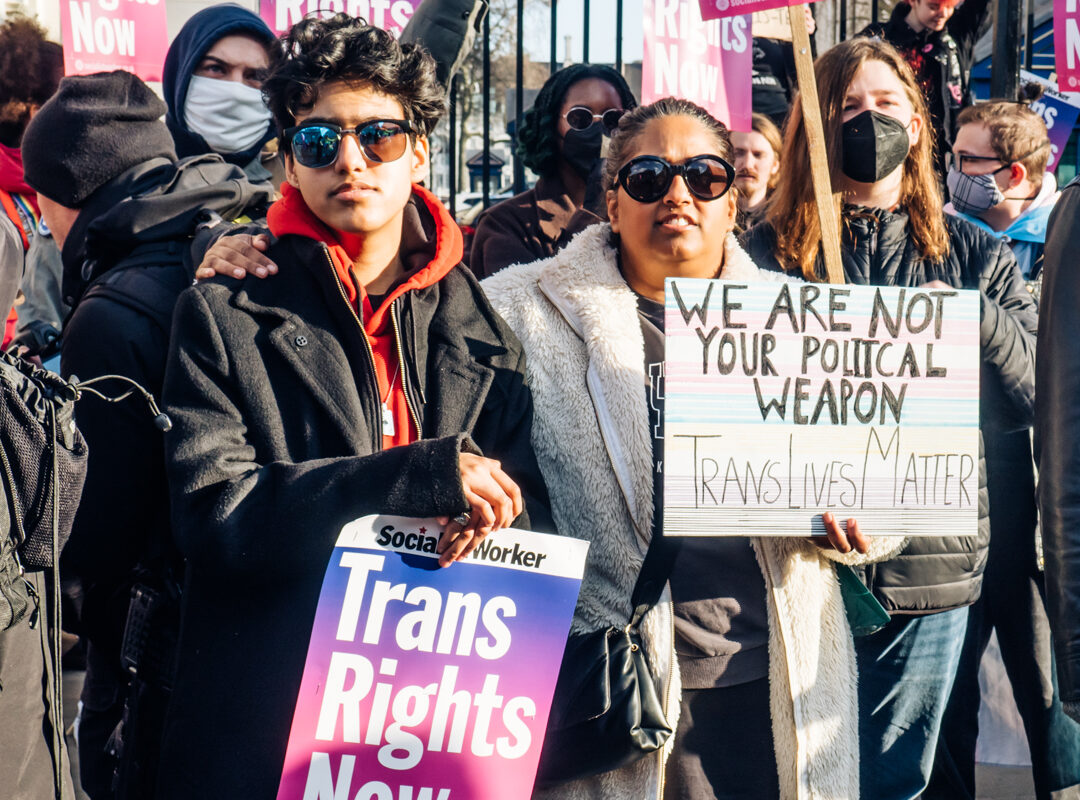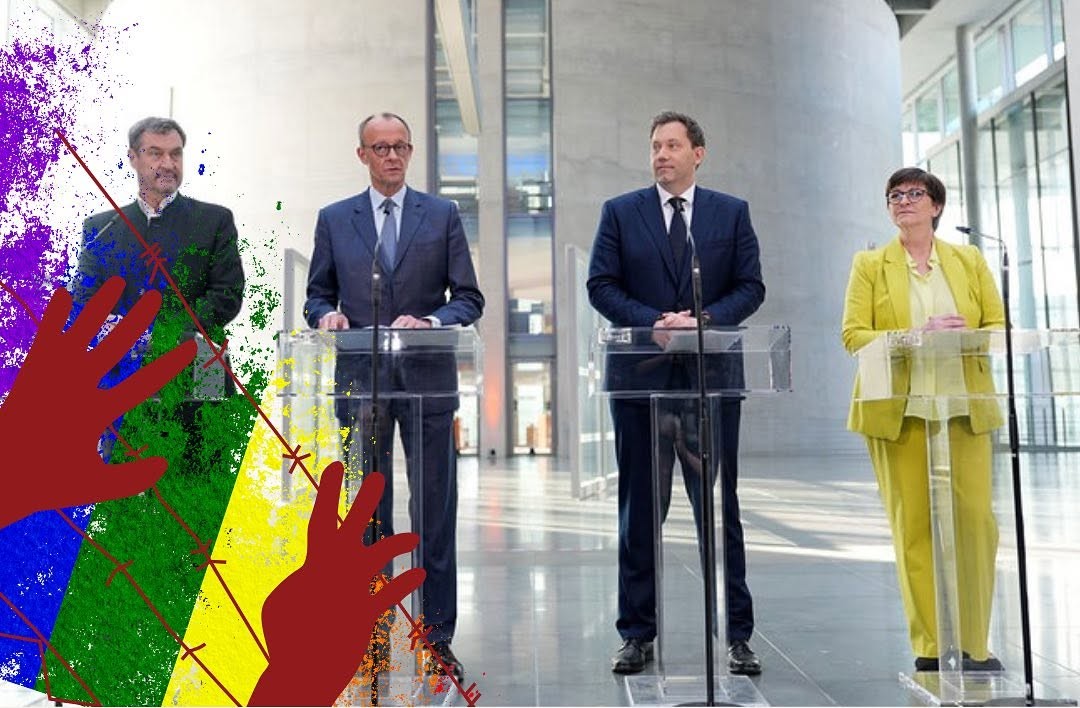In December the Scottish government decisively passed the Gender Recognition Reform (Scotland) bill with support from all parties. The bill makes it easier for Trans people to gain legal recognition of their gender by acquiring a Gender Recognition Certificate (GRC), which allows for the changing of their sex identity on birth certificates.
A GRC also allows Trans people to have their gender recognised on their marriage license and death certificate. It takes away the need for a medical diagnosis of gender dysphoria to acquire a GRC and lowers the minimum age of application to 16 from 18.
However, the bill was prevented from gaining royal assent, needed in UK law, by the Tory Westminster government on 17 January – which saw Section 35 of the Scotland Act used for the first time in its history. Scottish secretary in Westminster, Alister Jack, said the bill was being blocked as he believed it would have “adverse effects on the Equality Act”. Section 35 gives the Secretary of State for Scotland, a Tory appointed minister, the power to, in certain circumstances, veto legislation enacted by the devolved Scottish Parliament.
This has led to protests from Trans people and their allies in many towns and cities across England and in Scotland too.
About 1,000 people protested in Glasgow on Saturday the 21st, while at the same time, similar numbers protested outside Downing St, the home of the British Prime Minister Rushi Sunak and the heart of the Westminster government. Up to 2,000 protesters had shown their anger in central London the previous Wednesday night. Other protests included Bristol and York.
Trans activists are furious about this development. Many point out that even though the reforms in Scotland do not include nonbinary people, they nevertheless are a step on the road to making life easier for Trans people. They also deny that Trans rights cut across or harm the rights of women. Many point out the closure and under funding of resources for women and the recent rape and murder of women by the British Police forces by policemen such as David Carrick and Wayne Cousins as representing the real threat to women.
Scottish First Minister Nicola Sturgeon replied to those that say the Gender Reform Bill would make it easier for “predatory men” to access women’s single-sex spaces, saying,
“I don’t believe that will be the case. You have some of the groups that are subject to violence by predatory men – Rape Crisis Scotland, Women’s AID Scotland, Zero Tolerance Scotland. These are groups that work with vulnerable women every single day. These organisations support this legislation, so it’s important to be clear. Actually, most of the key women’s organisations in Scotland do support this legislation.”
Sturgeon also pointed out that no one needs to show their birth certificate at present to enter women only spaces, “the point is this bill does not give a predatory man any more ability to abuse women than that predatory man already has.”
It seems likely that the Scottish government will pursue this through the courts and ask for a Judicial Review.
They point out that Westminster politicians are weaponising a vulnerable section of society, Trans people, in order to appeal to core Tory voters at a time when the government looks weak.
The move by the Tories has fuelled anger in Scotland at the Westminster government. A poll carried out for a national newspaper by Find Out Now suggested that 54% backed Scotland leaving the UK, with 46% in favour of remaining.
Many people living in Scotland are increasingly disgruntled with the UK government and the Tory party. They feel that they did not vote for the Tories, yet have to put up with their increasingly economically harsh and authoritarian rule. Many now support calls for Scottish independence.
The use of the Section 35 ruling has been hailed by some as “the end of devolution.” The devolved Scottish parliament was supposed to satisfy the feelings of Scots that they should be able to control their own affairs. However, the use of a veto by Alister Jack to block legislation that the Tory Party does not like will seem to many as a major step backwards regardless of their views on the GRR.
This comes only a couple of months after Westminster ruled in a court judgement that the Scottish Parliament did not have the right to call a referendum on independence for Scotland.
Scottish Civil Society Organisations have issued this statement.




